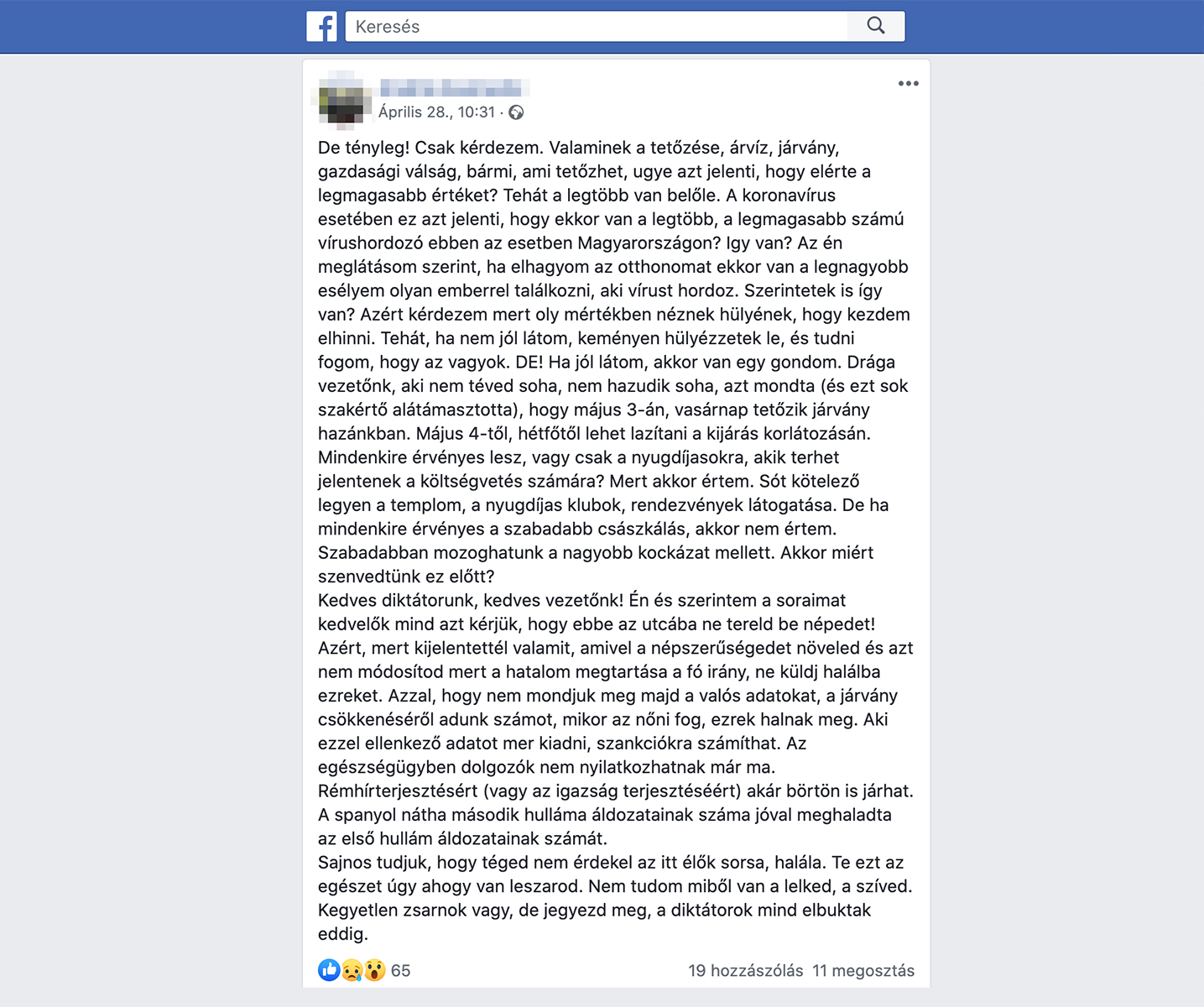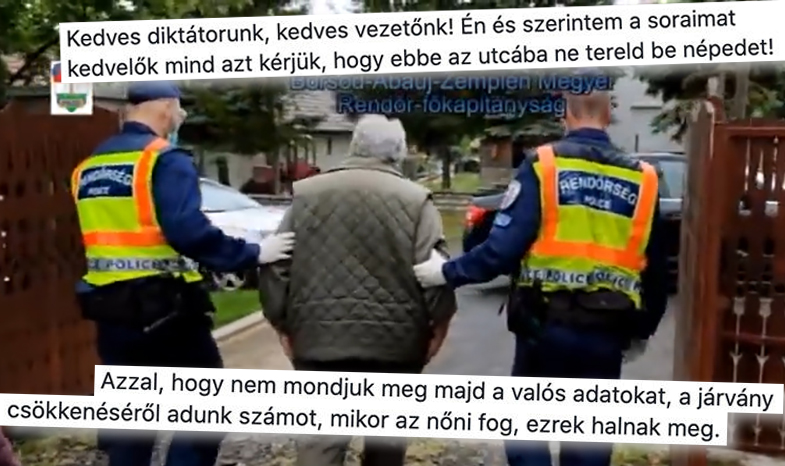He criticized the government on Facebook, and was taken from his home by police at dawn
- Stay updated on the latest news from Hungary by signing up for the free InsightHungary newsletter:
A 64-year-old man was detained by police Tuesday morning at his home near Szerencs, in Borsod county, and taken into custody on suspicion of fearmongering. He was interrogated in connection with a post he made on Facebook on April 28 which, according to police, alleged that the country’s leadership had deliberately timed the lifting of curfew restrictions to coincide with the peak of the coronavirus pandemic, which the man suggested could lead to mass infections.
The man, András, was released by police later that afternoon, and spoke to 444 about his interrogation.
"[The police] asked questions like who exactly I was calling a dictator," András said. "I told them their task had achieved its result and would probably shut me up."
Indeed, in his post, András addressed "Our dear dictator, our dear leader", and made a plea, presumably to Viktor Orbán, not to relax curfew restrictions on the day after the projected peak of the pandemic and thus, as he put it, "send thousands to their deaths".
"You are a cruel tyrant, but remember, all dictators have failed so far," András closed his post.
Part of the powers granted to the government by the coronavirus authorization act is the ability to criminally prosecute the spreading of false news which inhibits the ability of authorities to defend against the pandemic. András recalled that the police arrived at his home at 6 a.m. with a search warrant and asked whether he had made the post, but that he didn't believe the case would amount to anything.
"I didn't deny anything and I accept responsibility, because there's nothing in it that would inhibit the defense against the virus," he said. "There's no news in it, let alone false news. It was rather a philosophical line of reasoning."
Police told András after his interrogation that he would not be charged since no crime had been committed. A statement on the national police website, which was still online as of Tuesday night, declared that "the police constantly monitor the internet and are taking necessary measures, including removing objectionable content or, in more serious cases, initiating criminal proceedings."
"A malicious or ill-considered share on the internet could constitute a crime," the statement reads.
"When the regime changed [in 1990], we wouldn't have imagined this," András said. "We were happy, we were smiling. Now, there's nobody that would smile, and not because of the migrants and not because of the virus."
Júlia Kaputa of the Hungarian Civil Liberties Union's Political Freedom Project told 444 that András' post criticizing the government was an expression of opinion, and thus not subject to criminal provisions against fearmongering. The changes to the criminal code refer only to deliberate publication of falsehoods or distorted facts which inhibit the defense against the pandemic, Kaputa said.



